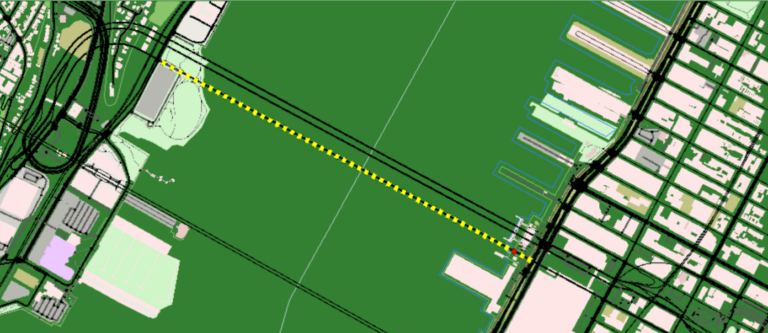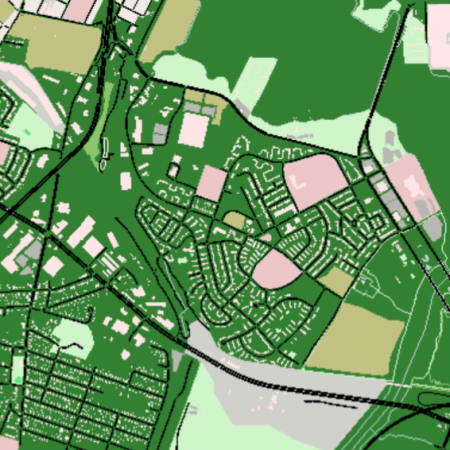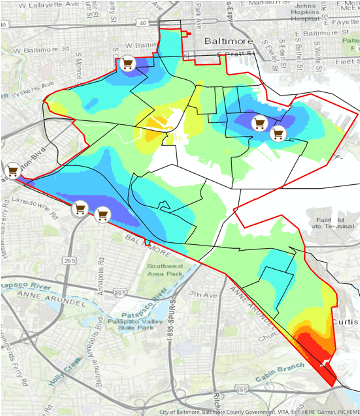Autonomous Vehicles
TRANSPORTATION
Assured Autonomous Vehicle Policy
Autonomous vehicles (AVs) have the potential to be a public good, provide necessary services, and improve safety. However, public surveys have shown a decrease in trust in AVs. This research utilizes Simulation of Urban Mobility (SUMO) to simulate traffic patterns, potential policy scenarios, and identify risks in the use of AVs. Currently, AVs are typically being used for private good and private benefit. Researching the capacity of AVs could result in public health benefits and greater equity because the simulations could inform policymakers on AV deployment development.
One such simulation is being done in the Cherry Hill neighborhood in south Baltimore to investigate how their use could be used to inform program decisions that will improve the neighborhood’s access to food resources, since it is considered a food desert.
Local Motors, a MD based company is seeking help for modeling the impact of AV buses in the Lincoln Tunnel XBL (exclusive bus lane). We developed several simulated scenarios showing AV impact as a function of the proportion of AV buses in the XBL and according to the type of AV behavior.
A similar project, South Baltimore GO!, uses SUMO to pair Lyft drivers with South Baltimore residents for rides to medical clinics, grocery stores, and employment places.

Figure 1: Lincoln Tunnel SUMO Simulation

Figure 2: Cherry Hill SUMO Simulation
